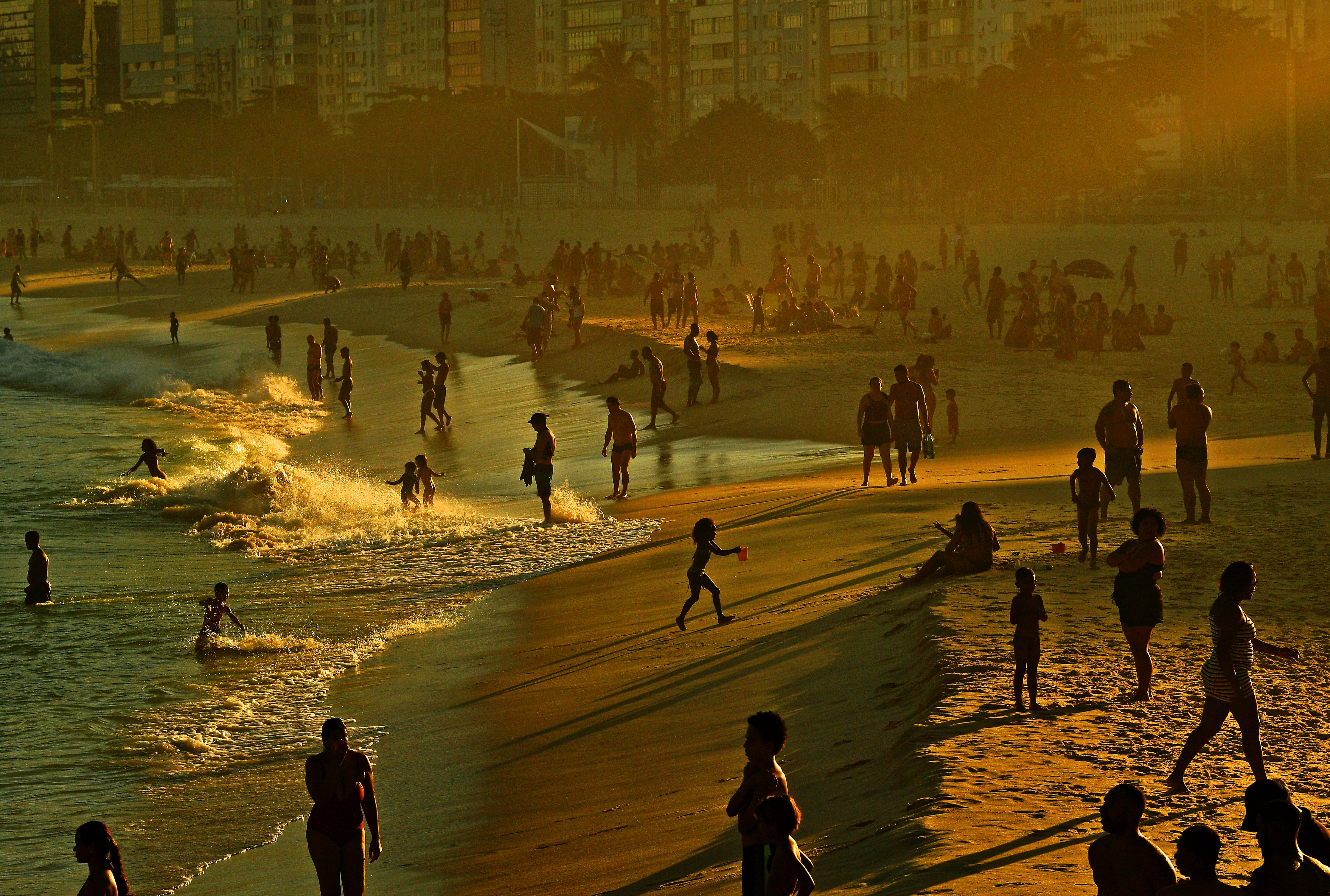Unvaccinated people could start to grow resentful as the vacation season nears, British study shows

People enjoy the beach in Leme, south of Rio de Janeiro, Brazil, on June 21, 2020 during the Covid-19 coronavirus pandemic.
CARL DE SOUZA
LONDON — As coronavirus vaccination programs progress, attention is turning to summer vacations and what kind of freedoms we might experience this year — and whether this depends on our vaccination status.
A new U.K. study has highlighted the potential for tension between those that are vaccinated and the unvaccinated, especially if there are travel restrictions on those that have not yet received a Covid shot.
A British poll released Friday showed the potential for so-called “vaccine resentment” is present. Nearly one in five people who haven’t had a Covid vaccine said they’ll feel resentful toward those who have, if they don’t get one in time for their summer vacation.
The issue is salient as multiple countries consider how, and whether, to introduce a type of “vaccine passport” that could allow anyone who is vaccinated to travel.
Critics of the idea say it would be unfair to the unvaccinated whether by dint of their age — younger people in most countries are yet to be vaccinated given their lower risk from the coronavirus — or through their choice not to be vaccinated. Travel industry bodies also worry that there could be a lack of standardized approach.
For example, the EU is considering a “green digital certificate” that would show whether someone is vaccinated or has recovered from Covid or has had a recent negative test. In the U.K., meanwhile, vaccine “passports” with one’s vaccination status linked to the National Health Service app could be used.
The U.K. government is set to reveal a list of countries on May 17 where travel is permitted to with, or without, quarantining on return. But entry requirements for Brits to other countries, and vice versa, remains to be seen.
The U.K. has one thing going for it in that it has leapt ahead with its vaccination program; around 34 million adults have been vaccinated so far with a single dose of a Covid vaccine, and over 13 million have had two doses. The majority of under-40s in Britain are yet to be called for vaccination but are next in line for a Covid shot. The British government has said it’s on track to offer all U.K. adults a first dose before July 31.
The latest research on vaccine sentiment, conducted in the U.K. by the University of Bristol, King’s College London and the NIHR Health Protection Research Unit in Emergency Preparedness and Response, found that 18% of people who haven’t had a Covid vaccine yet say they’ll feel resentful toward those who have if they don’t receive one in time for their summer vacation — although a majority (58%) say they will not feel such resentment.
The poll, of almost 5,000 British adults conducted between April 1-16 found that respondents from higher-income households are more likely to predict they’ll feel a sense of resentment than lower income families: 24% of unvaccinated people from households earning more than £55,000 (around $76,700) a year say they’ll feel resentful if not vaccinated in time for their vacation, compared with 14% of those who earn between £20,000 and £34,999.
Those aged 18 to 44 (20%) who have not yet had the vaccine are twice as likely as those aged 45 and above (8%) to say they’ll be resentful, which is likely to reflect the very different levels of vaccine coverage between the different age groups.
More generally, around one in eight unvaccinated people (12%) also say they currently feel resentful toward those who have had the vaccine. But far more — two-thirds (67%) — do not feel this way, the poll found.
Bobby Duffy, director of the Policy Institute at King’s College London, said the poll showed that
“there is very widespread support for the staged approach to vaccination in the U.K., getting to the oldest and most vulnerable first, as demonstrated by the fact that only 12% of the currently unvaccinated say they resent those who have been. This no doubt partly reflects the speed and efficiency of the vaccine rollout overall, as people can have confidence that they’ll get their turn soon.”
However, there are some clear limits to this, he added. “With the summer holiday season a key target many have in mind, and a potential test of our collective spirit if some are free to travel while others are not. Public faith in the equity and reliability of any vaccine passport system is going to need to be carefully encouraged.”




